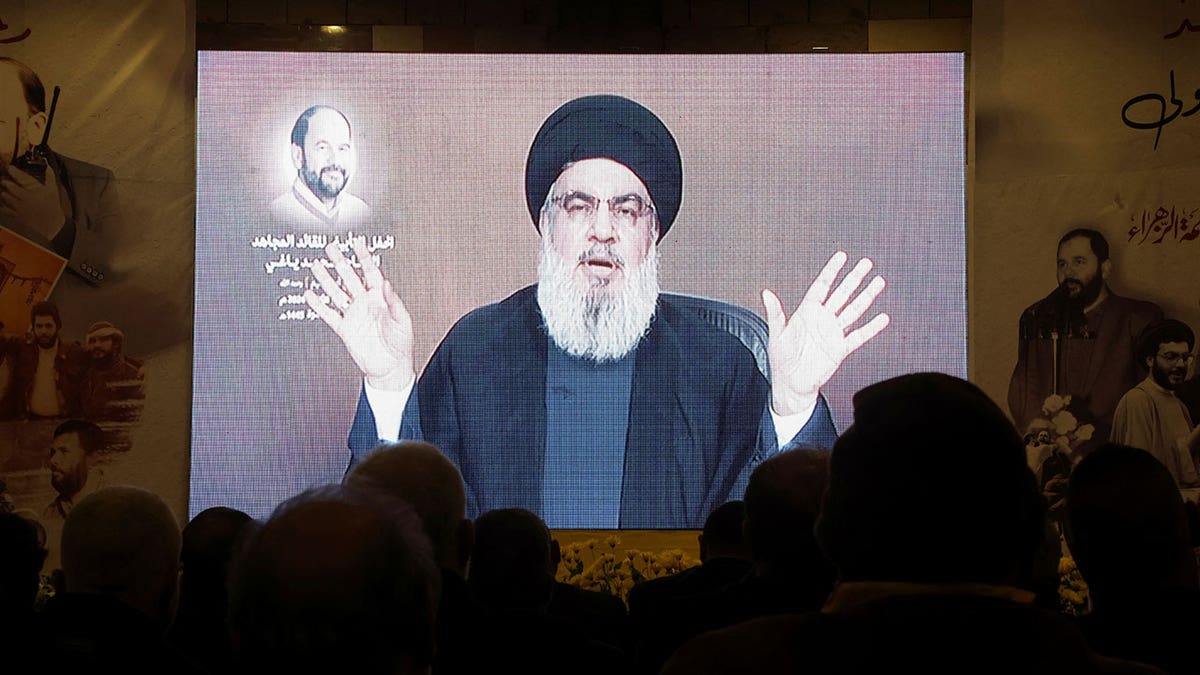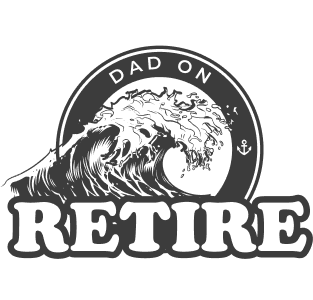
Hezbollah chief Sayyed Hassan Nasrallah said on Friday that Lebanon would be ‘exposed’ to Israeli attacks if his terrorist group does not respond to the alleged assassination of a senior Hamas official in Beirut.
Deputy Hamas leader Saleh Arouri and three others were killed in an airstrike that hit Beirut on Tuesday. Hezbollah media blamed Israel for the attack, but Israeli officials denied involvement.
In a televised address — his second in less than a week — Nasrallah said that Hezbollah ‘cannot be silent about a violation of this level.’
‘This means that all of Lebanon will become exposed, all cities, villages, and figures will become exposed,’ he said.
Iran-backed Hezbollah has launched rockets at Israeli military posts along Israel’s northern border since October 8 in support of Hamas. The attacks began one day after the Palestinian terrorist group carried out deadly attacks on Israel, killing some 1,200 Israelis, which led to Israel’s retaliatory war in Gaza.
Nasrallah said Hezbollah has carried out 670 military operations on the Israeli-Lebanese border over nearly three months since the start of the war. He claimed that his fighters have destroyed a large number of Israeli military vehicles and tanks.
He also said that if Israel completes its military objective to eradicate Hamas in Gaza, the Jewish state would then attack Lebanon, but he warned that an expanded conflict would hurt residents of northern Israel first.
‘They are calling on their government to go to war on Lebanon or to have a military solution for Lebanon. I tell them: this choice is a mistake, for you and your government, and the first one who will pay for this mistaken choice is you,’ Nasrallah said.
On Wednesday, the Hezbollah leader said that if Israel expands the war to Lebanon, there would be ‘no ceilings’ and ‘no rules’ governing Hezbollah’s response.
‘Whoever thinks of war with us — in one word, he will regret it,’ Nasrallah said.
He also said the end of the Gaza war could present a ‘historic opportunity’ for Lebanon to restore its control over territory now occupied by Israel, including the Shebaa Farms, the town of Ghajar and other territory.
Israel has held the Shebaa Farms, a 15-square-mile (39-square-km) patch of land, since 1967. Both Syria and Lebanon claim the Shebaa Farms are Lebanese. Ghajar straddles the Israel-Lebanon border. Lebanon considers it to be its territory, but its residents have professed allegiance to Syria.
Israeli officials have denied involvement in the strike that killed Arouri but noted the ‘surgical’ precision of the attack.
‘Israel has not taken responsibility for this attack,’ Ambassador Mark Regev, a Netanyahu adviser, told MSNBC. ‘But whoever did it must be clear that this was not an attack on the Lebanese state.’
‘It was not even an attack on Hezbollah terrorist organization,’ he added. ‘Whoever did this did a surgical strike against the Hamas leadership.’
Israel fought a 34-day war with Hezbollah in July and August of 2006. Israel lost an estimated 120 soldiers during the fighting, while Hezbollah lost more than 1,000 fighters.
Fox News Digital’s Brandon Drey, Timothy H.J. Nerozzi, Greg Norman and Reuters contributed to this report.

Hezbollah chief Sayyed Hassan Nasrallah said on Friday that Lebanon would be ‘exposed’ to Israeli attacks if his terrorist group does not respond to the alleged assassination of a senior Hamas official in Beirut.
Deputy Hamas leader Saleh Arouri and three others were killed in an airstrike that hit Beirut on Tuesday. Hezbollah media blamed Israel for the attack, but Israeli officials denied involvement.
In a televised address — his second in less than a week — Nasrallah said that Hezbollah ‘cannot be silent about a violation of this level.’
‘This means that all of Lebanon will become exposed, all cities, villages, and figures will become exposed,’ he said.
Iran-backed Hezbollah has launched rockets at Israeli military posts along Israel’s northern border since October 8 in support of Hamas. The attacks began one day after the Palestinian terrorist group carried out deadly attacks on Israel, killing some 1,200 Israelis, which led to Israel’s retaliatory war in Gaza.
Nasrallah said Hezbollah has carried out 670 military operations on the Israeli-Lebanese border over nearly three months since the start of the war. He claimed that his fighters have destroyed a large number of Israeli military vehicles and tanks.
He also said that if Israel completes its military objective to eradicate Hamas in Gaza, the Jewish state would then attack Lebanon, but he warned that an expanded conflict would hurt residents of northern Israel first.
‘They are calling on their government to go to war on Lebanon or to have a military solution for Lebanon. I tell them: this choice is a mistake, for you and your government, and the first one who will pay for this mistaken choice is you,’ Nasrallah said.
On Wednesday, the Hezbollah leader said that if Israel expands the war to Lebanon, there would be ‘no ceilings’ and ‘no rules’ governing Hezbollah’s response.
‘Whoever thinks of war with us — in one word, he will regret it,’ Nasrallah said.
He also said the end of the Gaza war could present a ‘historic opportunity’ for Lebanon to restore its control over territory now occupied by Israel, including the Shebaa Farms, the town of Ghajar and other territory.
Israel has held the Shebaa Farms, a 15-square-mile (39-square-km) patch of land, since 1967. Both Syria and Lebanon claim the Shebaa Farms are Lebanese. Ghajar straddles the Israel-Lebanon border. Lebanon considers it to be its territory, but its residents have professed allegiance to Syria.
Israeli officials have denied involvement in the strike that killed Arouri but noted the ‘surgical’ precision of the attack.
‘Israel has not taken responsibility for this attack,’ Ambassador Mark Regev, a Netanyahu adviser, told MSNBC. ‘But whoever did it must be clear that this was not an attack on the Lebanese state.’
‘It was not even an attack on Hezbollah terrorist organization,’ he added. ‘Whoever did this did a surgical strike against the Hamas leadership.’
Israel fought a 34-day war with Hezbollah in July and August of 2006. Israel lost an estimated 120 soldiers during the fighting, while Hezbollah lost more than 1,000 fighters.
Fox News Digital’s Brandon Drey, Timothy H.J. Nerozzi, Greg Norman and Reuters contributed to this report.









